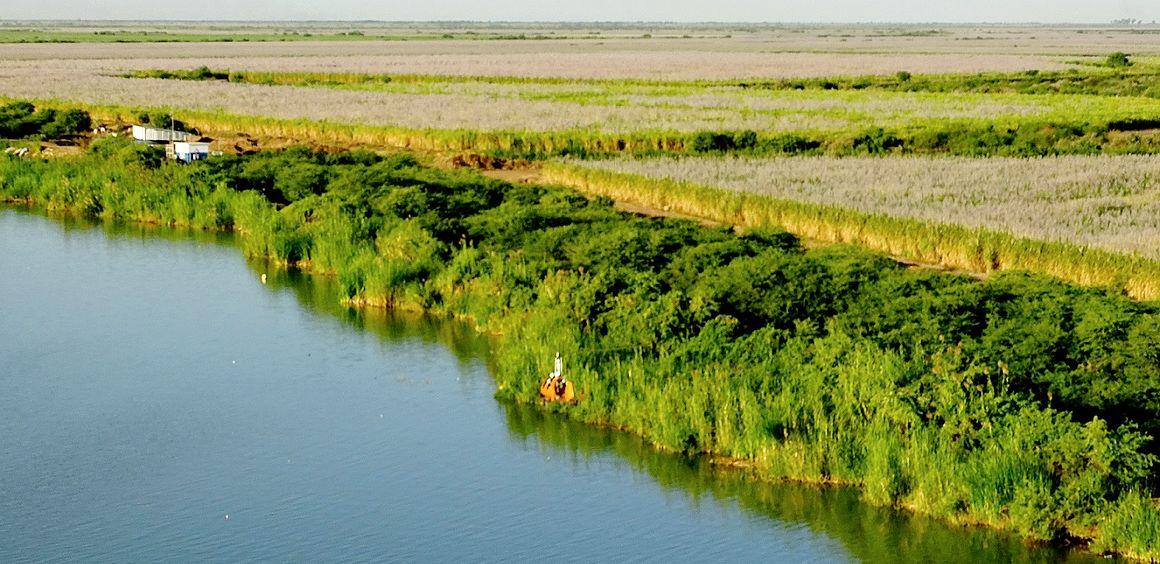- Home
- Worldwide
- CIRAD worldwide
- Projects
- HEALTH & TERRITORIES project
Health (humans, animals, plants), a development lever within the agroecological transition - SANTÉS & TERRITOIRES

Lake Guiers, Senegal © JDC 2019
Issues
The current health crisis acutely reminds us how much our societies are exposed and vulnerable to the emergence of new pathogens and, by extension, to the risks of global change (increase in farmed areas, biodiversity erosion, climate change, etc.). The crisis incites us to take a new look at the interdependence of environments and societies.
Territorial health, along with agroecological challenges, is a complex notion that amounts to more than environmental, plant, animal and human health combined. It needs to be defined by a set of indicators co-constructed by stakeholders in the territory, in concertation with researchers. It needs to take into account the dynamics of the socio-ecosystem, to make it more resilient to ecological disruptions and climate change (thereby contributing to national climate transition strategies), but also to social, economic and political crises.
Description
The Health & Territories project adopts an evolutionary approach of co-identifying issues and co‑designing the solutions to be provided. This support initiative will lead to the development of tools for concertation and local coordination, and will be implemented in living labs. Within those living labs, stakeholders will co-construct and test frameworks for concertation and activities to galvanize the agroecological transition specific to their territory, in relation to the health challenges identified there.
The project is organized along four lines:
- Understanding and measuring how farming practices affect health: some new indicators will therefore be developed in partnership with the different stakeholders, namely farmers, the private sector, decision-makers, civil society, research and training operators and centres;
- Defining and implementing support methods to assist stakeholders in their agroecological transitions;
- Setting in place and running a knowledge management system;
- Running and leading a Community of Practice working on a project cluster level and in the living labs.
Expected impacts
The project aims to improve the standard of living and well-being of local populations taking an integrated approach to health on a territory scale, by establishing sustainable agrosystems:
- Capacity building and strengthening of local stakeholders’ abilities to adapt to hazards adversely affecting their health, in connection with the agricultural activities they introduce;
- Collective detection/identification of the overall health attributes of their territory in a climate change context;
- Better understanding and management of health issues related to agriculture and environmental management;
- Exploration with local farmers (transhumance farmers, livestock farmers, crop farmers, local authorities, back-up services) of modalities for the transition to agroecology.
Contract partners
Partners with whom a contract has been signed under the project; with whom a co-contracting agreement has been signed:
- Institut de recherche pour le Développement (IRD), France
- Stockholm Resilience Centre (SRC), Sweden
- Institut Sénégalais de Recherche Agricole (ISRA), Senegal
- Société d’Aménagement et d’Exploitation du Delta (SAED), Senegal
- Gaston Berger University (UGB), Senegal
- Institut de Recherche sur le Coton (IRC), Benin
- Abomey Calavi University, (UAC), Benin
- University of Parakou, Benin.
- Institut National de Recherche Agronomique du Bénin (INRAB)
- National University of Agriculture, Porto Novo, Benin.
The objective of the DeSIRA initiative (Development Smart Innovation through Research in Agriculture, is to contribute to climate-relevant, productive and sustainable transformation of agriculture and food systems in low and middle-income countries.
Learn more
























